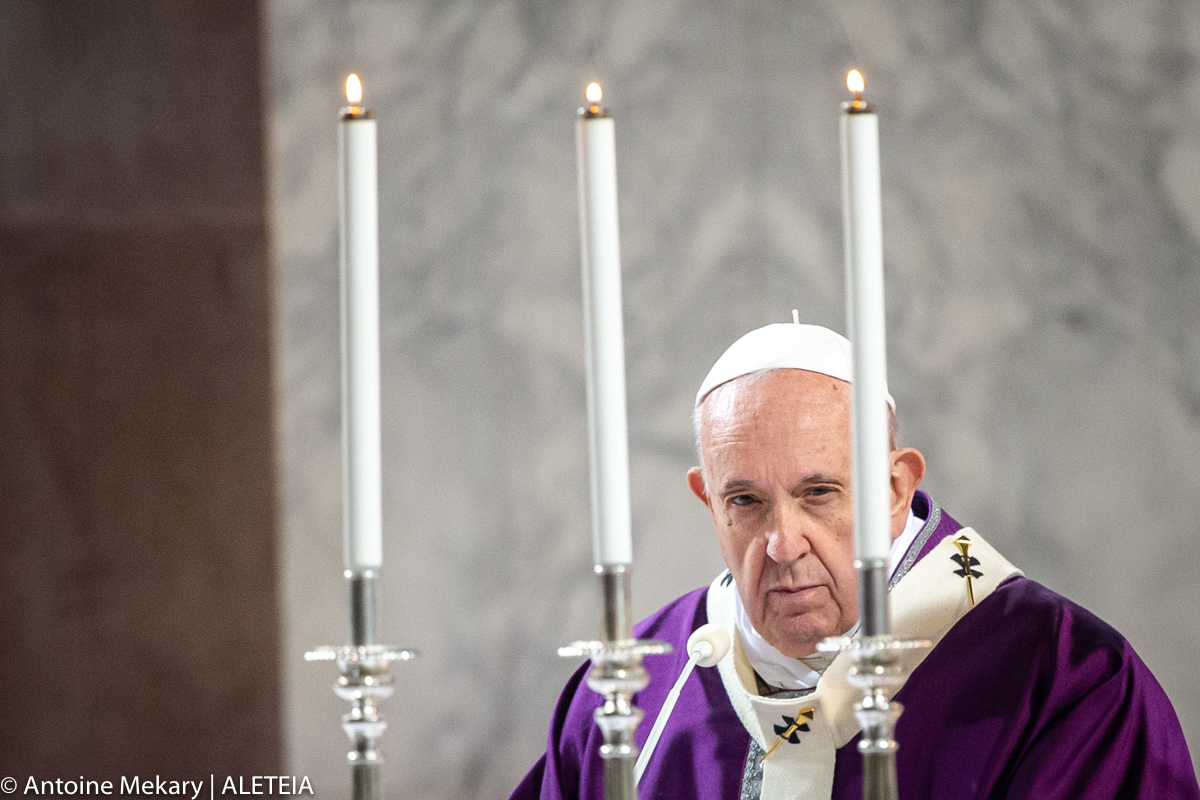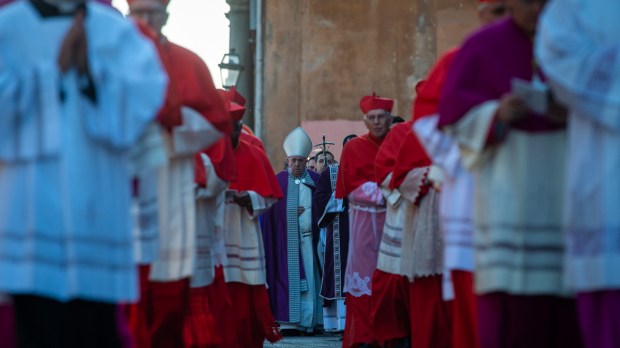Following an ancient Ash Wednesday tradition, Pope Francis began with silent prayer at the church of Sant’Anselmo before leading a penitential procession to the Basilica of Santa Sabina on the Aventine Hill where he celebrated Mass and received the imposition of ashes.
Cardinals, bishops, priests, monks, friars, and laity process the short path between the two churches, singing the Litany of the Saints. The tradition of this pilgrimage dates back to the early fourth century.
Here is the pope’s homily from the Mass, in which he emphasized hope, and the cleansing that comes from the Sacrament of Confession.
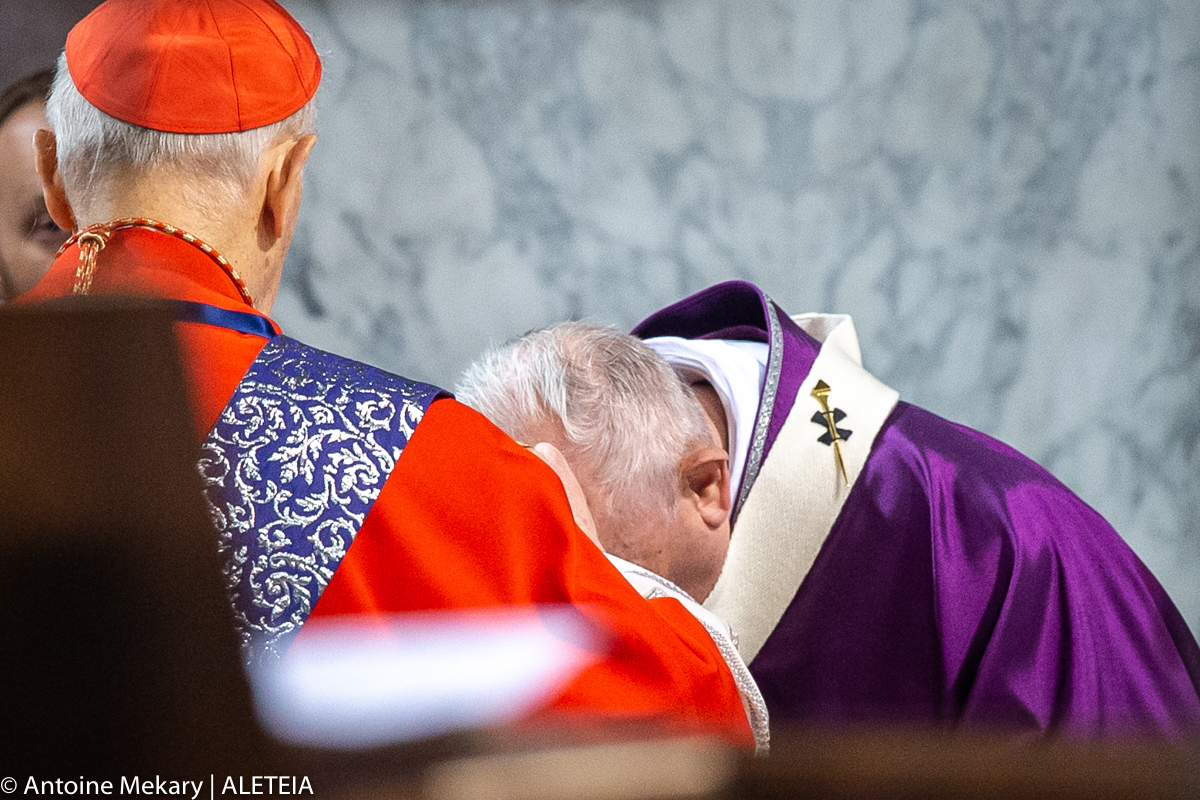
~
We begin the Lenten Season by receiving ashes: “You are dust, and to dust you shall return (cf. Gen 3:19). The dust sprinkled on our heads brings us back to earth; it reminds us that we are dust and to dust we shall return. We are weak, frail and mortal. Centuries and millennia pass and we come and go; before the immensity of galaxies and space, we are nothing. We are dust in the universe. Yet we are dust loved by God. It pleased the Lord to gather that dust in his hands and to breathe into it the breath of life (cf. Gen 2:7). We are thus a dust that is precious, destined for eternal life. We are the dust of the earth, upon which God has poured out his heaven, the dust that contains his dreams. We are God’s hope, his treasure and his glory.
Ashes are thus a reminder of the direction of our existence: a passage from dust to life. We are dust, earth, clay, but if we allow ourselves to be shaped by the hands of God, we become something wondrous. More often than not, though, especially at times of difficulty and loneliness, we only see our dust! But the Lord encourages us: in his eyes, our littleness is of infinite value. So let us take heart: we were born to be loved; we were born to be children of God.
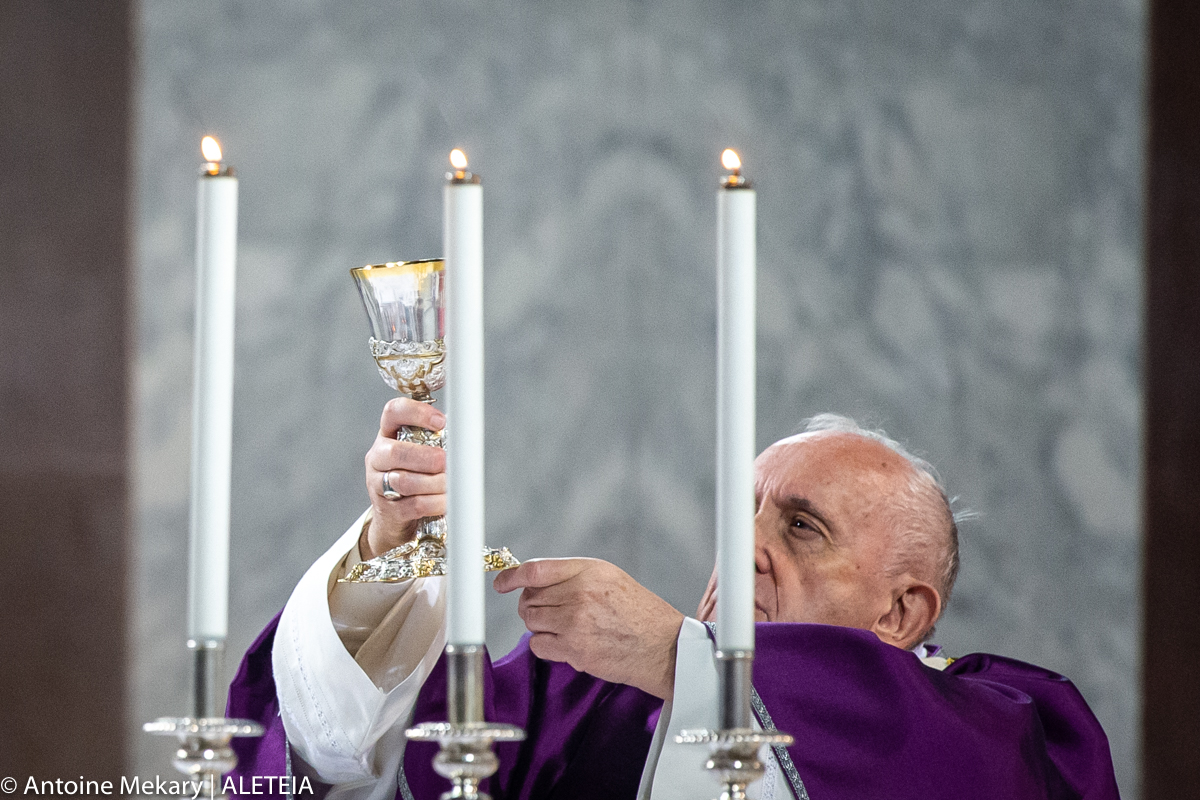
Dear brothers and sisters, may we keep this in mind as we begin this Lenten season. For Lent is not a time for useless sermons, but for recognizing that our lowly ashes are loved by God. It is a time of grace, a time for letting God gaze upon us with love and in this way change our lives. We were put in this world to go from ashes to life. So let us not turn our hopes and God’s dream for us into powder and ashes. Let us not grow resigned. You may ask: “How can I trust? The world is falling to pieces, fear is growing, there is so much malice all around us, society is becoming less and less Christian…” Don’t you believe that God can transform our dust into glory?
The ashes we receive on our foreheads should affect the thoughts passing through our minds. They remind us that, as God’s children, we cannot spend our lives chasing after dust. From there a question can pass into our hearts: “What am I living for?” If it is for the fleeting realities of this world, I am going back to ashes and dust, rejecting what God has done in my life. If I live only to earn money, to have a good time, to gain a bit of prestige or a promotion in my work, I am living for dust. If I am unhappy with life because I think I do not get enough respect or receive what I think is my due, then I am simply staring at dust.
That is not why we have been put in this world. We are worth so much more. We live for so much more, for we are meant to make God’s dream a reality and to love. Ashes are sprinkled on our heads so that the fire of love can be kindled in our hearts. We are citizens of heaven, and our love for God and neighbour is our passport to heaven. Our earthly possessions will prove useless, dust that scatters, but the love we share – in our families, at work, in the Church and in the world – will save us, for it will endure forever.
The ashes we receive remind us of a second and opposite passage: from life to dust. All around us, we see the dust of death. Lives reduced to ashes. Rubble, destruction, war. The lives of unwelcomed innocents, the lives of the excluded poor, the lives of the abandoned elderly. We continue to destroy ourselves, to return to ashes and dust. And how much dust there is in our relationships! Look at our homes and families: our quarrels, our inability to resolve conflicts, our unwillingness to apologize, to forgive, to start over, while at the same time insisting on our own freedom and our rights! All this dust that besmirches our love and mars our life. Even in the Church, the house of God, we have let so much dust collect, the dust of worldliness.
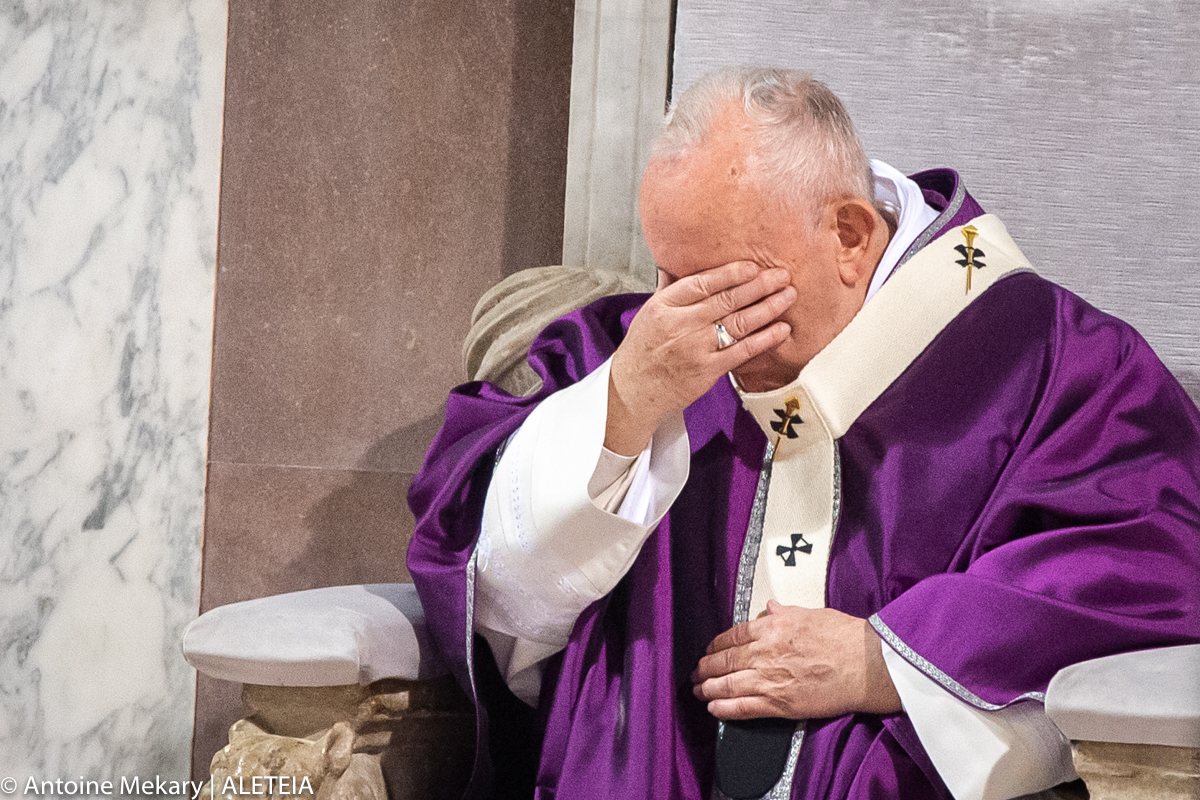
Let us look inside, into our hearts: how many times do we extinguish the fire of God with the ashes of hypocrisy! Hypocrisy is the filth that Jesus tells us in today’s Gospel that we have to remove. Indeed, the Lord tells us not only to carry out works of charity, to pray and to fast, but also to do these without pretense, duplicity and hypocrisy (cf. Mt 6:2.5.16). Yet how often do we do things only to be recognized, to look good, to satisfy our ego! How often do we profess to be Christians, yet in our hearts readily yield to passions that enslave us! How often do we preach one thing and practice another! How many times do we make ourselves look good on the outside while nursing grudges within! How much duplicity do we have in our hearts… All this is dust that besmirches, ashes that extinguish the fire of love.
We need to be cleansed of all the dust that has sullied our hearts. How? The urgent summons of Saint Paul in today’s second reading can help us. Paul says: “Be reconciled to God!” He does not simply ask; he begs: “We beg you on behalf of Christ, be reconciled to God” (2 Cor 5:20). We would have said: “Reconcile yourselves with God!” But no, Paul uses passive form: Be reconciled! Holiness is not achieved by our efforts, for it is grace! By ourselves, we cannot remove the dust that sullies our hearts. Only Jesus, who knows and loves our heart, can heal it. Lent is a time of healing.
What, then, are we to do? In journeying towards Easter, we can make two passages: first, from dust to life, from our fragile humanity to the humanity of Jesus, who heals us. We can halt in contemplation before the crucified Lord and repeat: “Jesus, you love me, transform me… Jesus, you love me, transform me…” And once we have received his love, once we have wept at the thought of that love, we can make the second passage, by determining never to fall again from life into dust. We can receive God’s forgiveness in the sacrament of Penance, because there the fire of God’s love consumes the ashes of our sin. The embrace of the Father in confession renews us from inside and purifies our heart. May we allow ourselves to be reconciled, in order to live as beloved children, as forgiven and healed sinners, as wayfarers with him at our side.
Let us allow ourselves to be loved, so that we can give love in return. Let us allow ourselves to stand up and walk towards Easter. Then we will experience the joy of discovering how God raises us up from our ashes.
